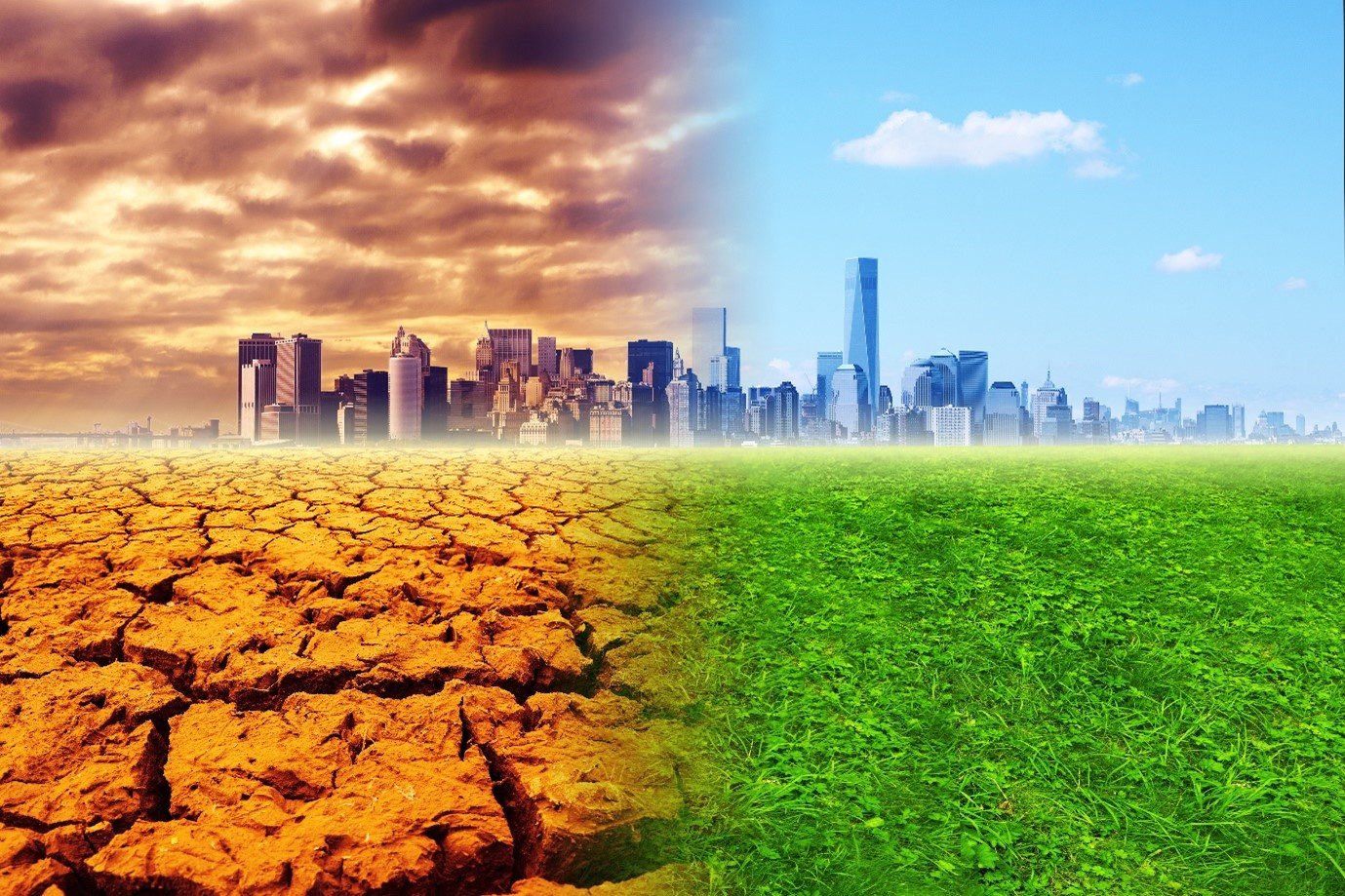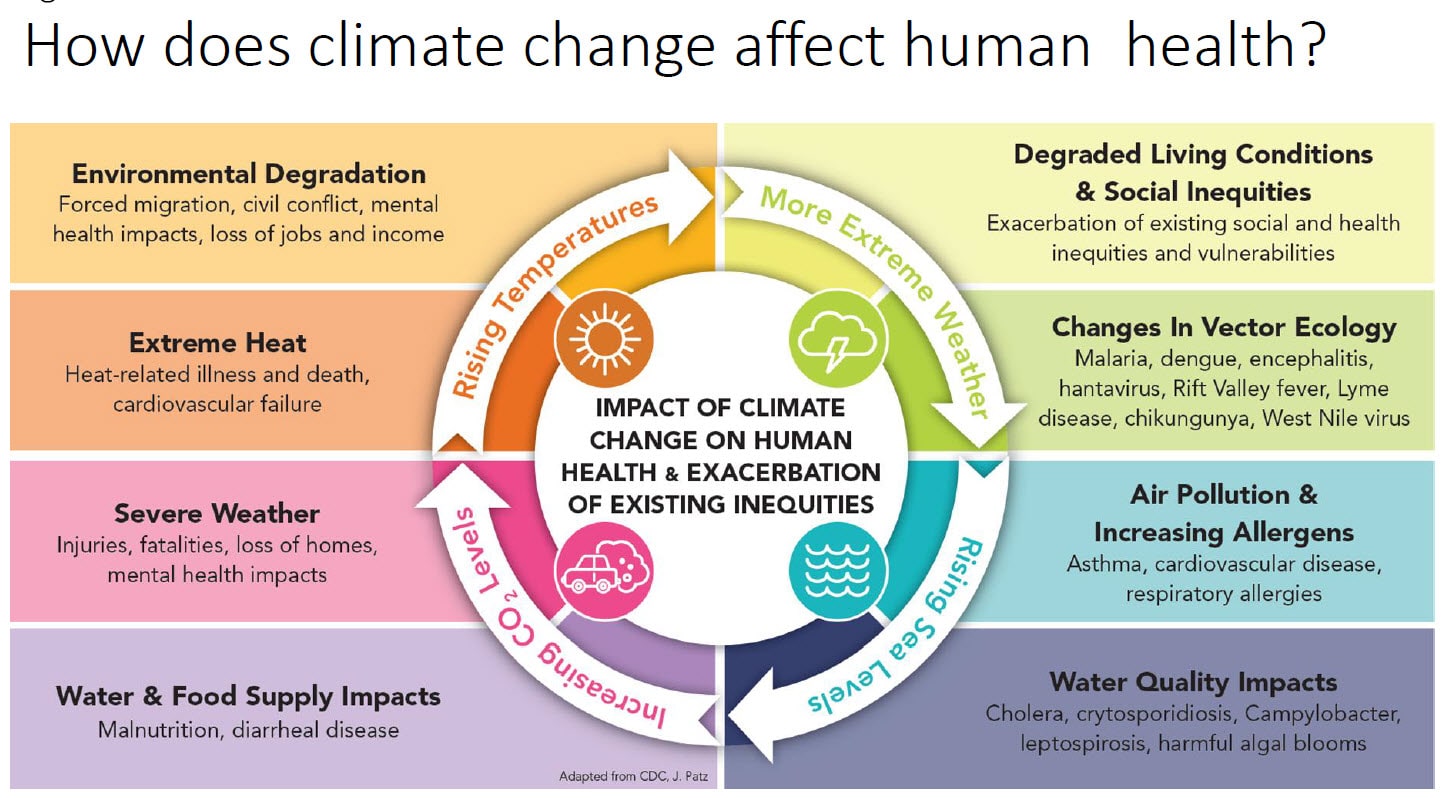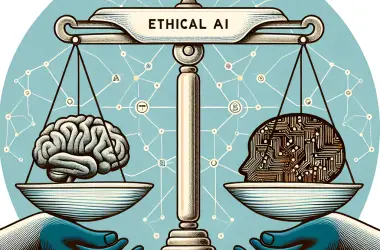Title: AI For Environmental Protection: Tackling Climate Change

Executive Summary

Artificial intelligence (AI) has the potential to revolutionize many aspects of our lives, including the way we protect the environment. AI can be used to collect and analyze data, develop new technologies, and make informed decisions that can help us mitigate climate change and protect our natural resources. This article explores five ways that AI can be used for environmental protection.

Introduction
The environmental challenges facing our planet are diverse and pressing: climate change, biodiversity loss, water pollution, and deforestation are widespread issues that have the potential to impact us devastatingly. However, recent advances in artificial intelligence (AI) have brought hope in our plight for environmental protection. By harnessing the power of AI, we can potentially address environmental concerns and work towards a sustainable future.
AI in Environmental Protection
1. Data Collection and Analysis
- Environmental Data Collection: AI can be used to collect data on a massive scale from various sources, such as sensors, satellites, and social media. This data can provide valuable insights into the state of the environment, enabling efficient decision-making and resource allocation.
- Data Analysis: AI algorithms can analyze large volumes of environmental data to identify trends, patterns, and correlations. These insights can help us better understand the causes and effects of environmental problems and develop targeted solutions.
- Prediction and Forecasting: AI models can use historical data to predict future environmental conditions, such as weather patterns, air quality, and water levels. This information can help us prepare for natural disasters and environmental changes.
- Real-Time Monitoring: AI-powered systems can continuously monitor environmental parameters in real-time, detecting pollution, illegal activities, and natural disasters. This information can be used to trigger alerts and facilitate rapid response.
2. Clean Energy and Renewable Sources
- Energy Efficiency: AI can optimize energy consumption in buildings, industries, and transportation through predictive analytics and AI-driven energy management systems.
- Renewable Energy Generation: AI algorithms can analyze weather patterns and optimize the performance of renewable energy systems, such as solar panels and wind turbines.
- Grid Optimization: AI can help balance the grid by predicting energy demand and supply, integrating renewable energy sources, and optimizing energy storage systems.
- Energy Storage: AI can optimize the charging and discharging of energy storage systems, minimizing waste and maximizing the utilization of renewable energy sources.
3. Climate Change Mitigation
- Carbon Capture and Storage: AI can be leveraged to develop efficient and cost-effective carbon capture technologies, as well as identify suitable geological storage sites.
- Forest Management: AI can analyze satellite imagery and sensor data to monitor deforestation, detect illegal logging, and assess the health and productivity of forests, helping to formulate effective forest management strategies.
- Climate Modeling: AI can be used to develop climate models that simulate the complex interactions between different climate components. These models can predict future climate scenarios and assess the impact of various mitigation strategies.
- Natural Disaster Management: AI can be used to analyze historical data, monitor environmental conditions, and predict the likelihood of natural disasters. This can help communities prepare for and respond to extreme weather events and reduce their impact.
4. Pollution Control and Waste Management
- Pollution Monitoring: AI can analyze data from sensors and satellites to detect and track pollution levels in air, water, and soil.
- Waste Management: AI can be applied to optimize waste collection routes, identify suitable recycling facilities, and sort materials for recycling.
- Emissions Reduction: AI can analyze energy usage patterns and recommend strategies to reduce emissions from vehicles, industries, and power plants.
- Water Treatment: AI algorithms can monitor water quality, predict contaminant levels, and optimize the performance of water treatment systems.
5. Sustainable Agriculture and Forestry
- Crop Monitoring: AI can analyze satellite imagery and sensor data to monitor crop health, detect pests and diseases, and predict yields.
- Precision Agriculture: AI can help farmers optimize the use of water, fertilizers, and pesticides by analyzing soil conditions, weather patterns, and crop performance data.
- Forestry Management: AI can be used to assess the health and productivity of forests, detect illegal logging, and develop sustainable forest management strategies.
- Biodiversity Conservation: AI can be utilized to monitor wildlife populations, identify habitats, and develop conservation strategies for threatened species.
Conclusion
Artificial intelligence holds immense potential in tackling the pressing challenges facing our planet. By leveraging its capabilities in data analysis, modeling, optimization, and decision-making, we can enhance our understanding of environmental systems, develop innovative solutions, and implement effective strategies to protect our environment for generations to come. It is imperative that we embrace the transformative power of AI to safeguard the health and vitality of our natural world.
Keyword Phrase Tags
- Artificial intelligence for environmental protection
- AI in climate change mitigation
- AI for clean energy and renewable sources
- AI in pollution control and waste management
- AI for sustainable agriculture and forestry



Thank you for writing this article on AI’s role in environmental protection. I appreciate your insights and I think it is a valuable contribution to the discussion about climate change. I have been studying AI for a few years now and I believe that this technology has the potential to assist with some of the most pressing challenges we face as a global community.
This article is frustratingly superficial I expected more depth from an article on such an important topic.
I am not a climate scientist, but I do have a background in data analysis. I found the section on using AI to analyze climate data particularly interesting. I believe this is a promising approach and I look forward to learning more about it.
I appreciate the enthusiasm for AI, but I am somewhat skeptical about its ability to solve the complex problems associated with climate change. AI is a powerful tool, but it is not a silver bullet.
I love that you are covering this! I work in environmental advocacy, and I see firsthand the devastating effects of climate change. It’s truly inspiring to see how AI can be used to protect our planet.
As a tech enthusiast, I am really excited about the potential of AI to fight climate change. I hope that more people will begin to invest in AI research and development in this area
Is AI going to save the planet? Stay tuned!
thought this article was well-written and informative. I especially appreciated the discussion of AI’s potential to help us develop new renewable energy sources. I believe that AI has the potential to make a significant contribution to the fight against climate change.